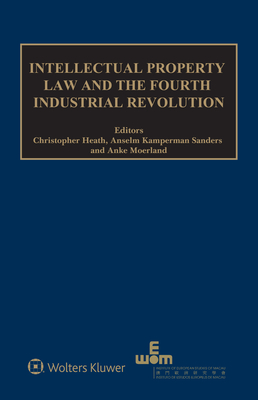

 Kluwer Law International
Kluwer Law International
Intellectual Property Law and the Fourth Industrial Revolution


Key Metrics
- Christopher Heath
- Kluwer Law International
- Hardcover
- 9789403522128
- 9.7 X 6.4 X 0.9 inches
- 1.35 pounds
- Law > International
- English
 Secure Transaction
Secure TransactionBook Description
The convergence of various fields of technology is changing the fabric of society. Big data and data mining, Internet of Things, artificial intelligence and blockchains are already affecting business models and leading to a social and economic transformations that have been dubbed by the fourth industrial revolution. Focusing on the framework of intellectual property rights, the contributions to this book analyse how the technical background of this massive transformation affects intellectual property law and policy and how intellectual property is likely to change in order to serve the society.
Well-known authorities in intellectual property law offer in-depth chapters on the roles in this revolution of such concepts and actualities as the following:
- power and role of data as the raw material of the revolution;
- artificial inventors and creators;
- trade marks in the dimension of avatars and fictional game characters;
- concept of inventive step change where the person skilled in the art is virtual;
- data rights versus intellectual property rights;
- transparency in the context of big data;
- interrelations of data, technology transfer and antitrust;
- self-executable and 'smart' contracts;
- redefining the balance among exclusive rights, development, technology transfer and contracts; and
- proprietary information versus the public domain.
The chapters also provide complete analyses of how big data changes decision-making processes, how sustainable development requires redefinition, how technology transfer is re-emerging as technology diffusion and how the role of contracts and blockchain as instruments of monitoring and enforcement are being defined.
Offering the first in-depth legal commentary and analysis of this highly topical issue, the book approaches the fourth industrial revolution from the perspectives of technical background, society and law. Its authoritative analysis of how the data-driven economy influences innovation and technology transfer is without peer. It will be welcomed by practicing lawyers in intellectual property rights and competition law, as well as by academics, think tanks and policymakers.
Videos
No Videos
Community reviews
Write a ReviewNo Community reviews